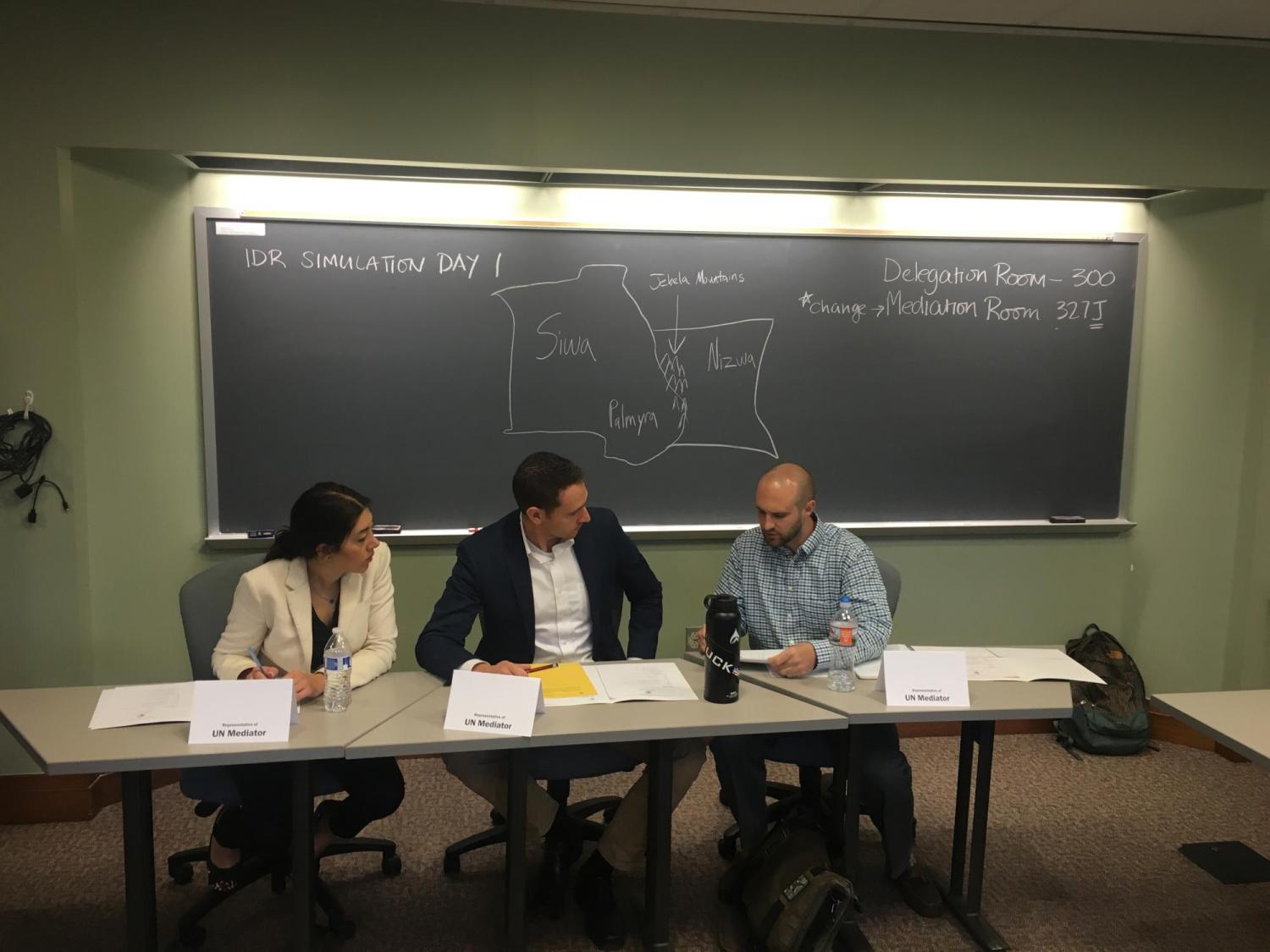International Dispute Resolution Course Teaches Students to Think Globally
In her International Dispute Resolution course at the University of Colorado Law School, Associate Professor Anna Spain Bradley blends traditional legal methods with diplomatic practices to give students a taste of the broader context in which legal dispute resolution takes place.
“The purpose for this course is to prepare students to thrive in their careers and to be engaged public citizens on the issues of our time, capable of offering meaningful critique,” she said.
To foster engagement with the skills, theories, strategies, and critical analysis methods of international dispute resolution, Spain Bradley introduces a weeklong simulation based on the U.S. Institute of Peace Simulation early in the semester. The exercise examines an active armed conflict with multiple parties which students must represent, and it underscores the importance and reality of the topics covered in the course. Students then complete additional simulations to apply the negotiation and mediation skills they learn in the course.
“These simulations give students a real-world context that emphasizes why the theory and skills they learn matter,” Spain Bradley said. “Doing so makes international disputes less foreign and more accessible. And I think that helps in the context of a classroom in the middle of America where many students don’t have direct experience or exposure to the workings of an international court or the tragedies involved in armed conflict.The simulations help them contextualize what they’re learning.”
Colorado Law offers a wide range of courses featuring various forms of experiential learning components such as the ones Spain Bradley employs. Through the simulation of performative work attorneys execute in the field, the drafting of complex legal documents, and the application of course material to actual legal proceedings, students are presented with a variety of avenues for learning and understanding legal matters.
“As a professor, it is incredibly rewarding to teach experiential courses using simulations and other engaging pedagogical tools because you can see the lightbulbs go off,” Spain Bradley said. “You see the learning. You see people grow within a period of four months from ‘I’ve never thought about it this way’ to ‘now I do.’”
For Spain Bradley, the students and their “lightbulb” moments have been the highlights of the International Dispute course she designed and has offered since joining the Colorado Law faculty in 2009.
The course is structured into three parts that explore how negotiation, mediation, arbitration, and judicial settlement are employed by nations and other actors to address and resolve international disputes and the armed conflicts they are often a part of.
The course asks students to consider a range of dispute resolution methods and critically determine which work best when and why. Spain Bradley also seeks to make her classroom inclusive by having students read from a variety of authors and challenging them to employ diverse methods of engaging in critical analysis that embrace feminist critique, third world approaches to international law, critical race theory, and more.
Complicating presupposed perspectives for her students and exposing them to a variety of ideas are important parts of international dispute resolution for Spain Bradley.
“I want students to appreciate that there are often constructed dichotomies in law like you’re either going to litigate or you’re going to negotiate. This course problematizes that. This course says there are multiple ways people can get together and form agreements, make deals, make treaties, etc. It’s not an either/or, it’s about what works best when and why.”
Spain Bradley also applies the philosophy of “what works best when and why” to teaching. Through her work on campus as assistant vice provost for faculty development and diversity, Spain Bradley offers sessions for faculty on inclusive pedagogy and best teaching practices.
She commends her Colorado Law colleagues for the innovations they bring to their classrooms: “There is great interest, motivation, and dedication here at Colorado Law to really revolutionize the way we do law school, how we teach, what we teach, why we offer students different experiences in and out of the classroom. These are new days for law students and such change is necessary to prepare them for the world they will face in their future careers.”
Spain Bradley specializes in international law with an emphasis on international dispute resolution and peace and security. Her current research examines how insights from neuroscience inform understandings about legal decision making. Last fall she presented her forthcoming article, "Hidden Cognition in Judicial Choice," on neuroscience and judicial decision making at the University of Washington School of Law’s faculty colloquium and at the American Society of International Law’s Research Forum at the Washington University School of Law. She is writing a book, to be published by Cambridge University Press, on how individuals and the decisions they take shape international law in surprising ways.
Pictured: Law students engaged in an international dispiute simulation in Spain Bradley's International Dispute Resolution class.



